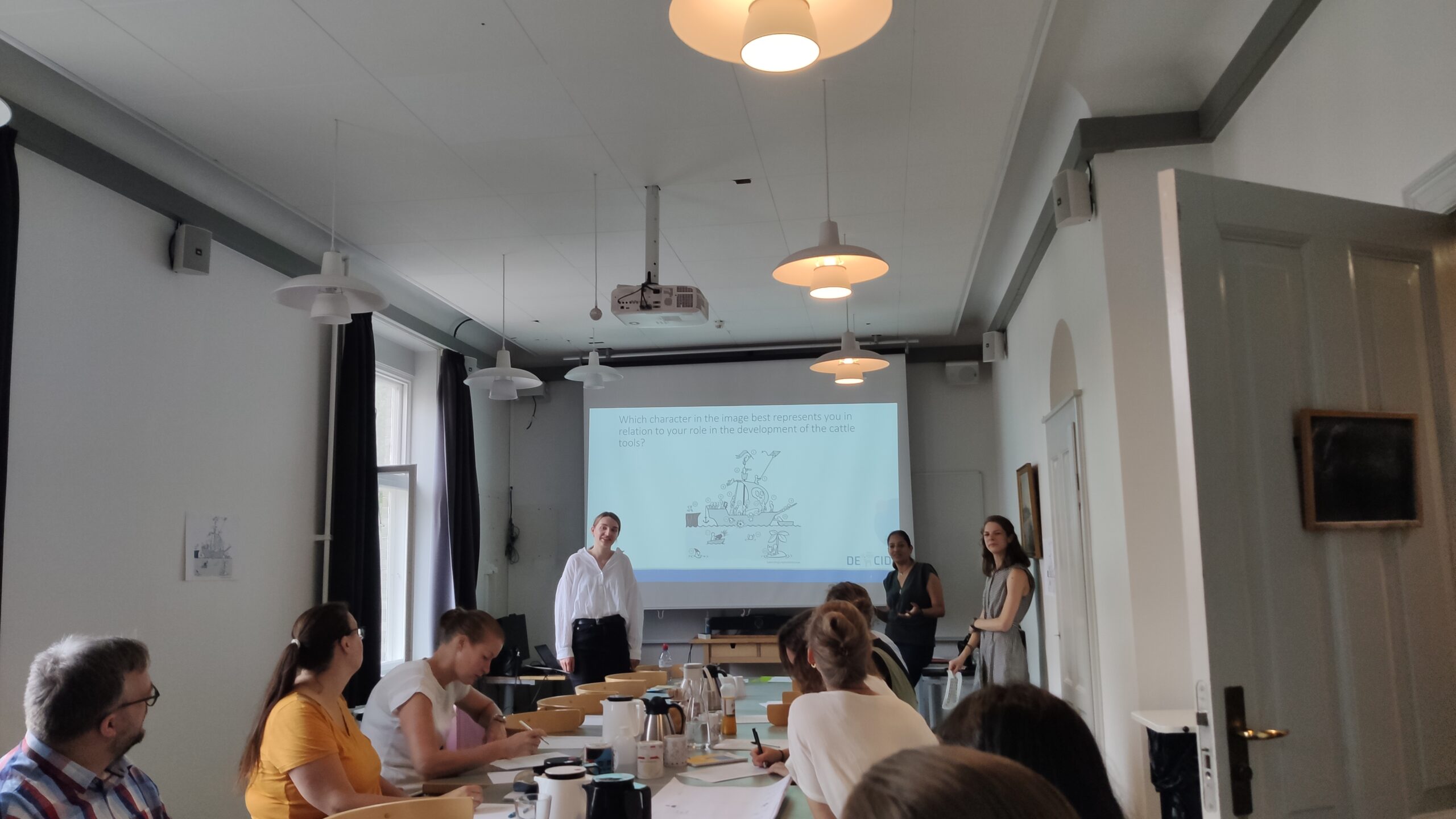What do end-users of data-driven decision-making tools want? What are their needs and how do we translate these into the pilots developed within DECIDE?
Following the last in-person General Assembly meeting held in Copenhagen in June of this year, DECIDE’s work package 5 (WP5) represented by Jasmeet Kaleer, Charlotte Doidge (UoN) and Laura Palczynski (IfA) invited cattle group members and data leaders to a half-day workshop to work on these questions, and share insights into their latest findings on stakeholder needs and perceptions of technology.
Experienced-based design methods – an approach that focuses on creating solutions by understanding and addressing the needs and desires of users through their experiences – helped the participants to (1) to generate an understanding of what a user need is, (2) to empathise with farmers’ and vets’ needs, and (3) to apply this understanding to the technological concepts that the cattle members are currently working on.
“Our overall aim in WP5 is to ensure that the tools are developed responsibly with the users (i.e., farmers and vets) needs and values in mind. We have recently analysed qualitative data to identify farmers’ and vets’ needs of technology and data and wanted to share this knowledge with the other DECIDE group members. However, psychological needs can be quite abstract, and we required a way to make the needs more well defined. Therefore, we conducted this workshop to support researchers who were developing the cattle tools. We used experienced-based design methods such as empathy mapping and storyboarding, which helped the researchers understand the perspectives of farmers and vets and their relevant psychological needs.” – Charlotte Doidge (UoN)
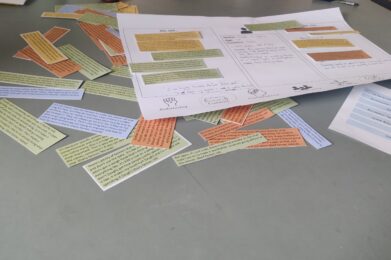
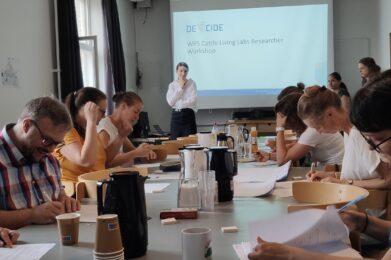
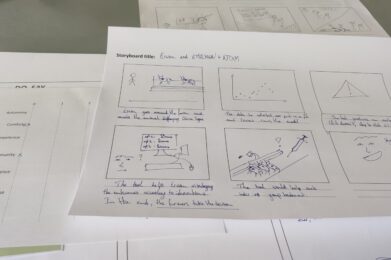
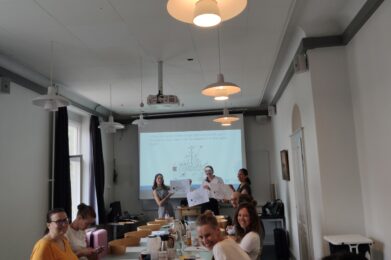
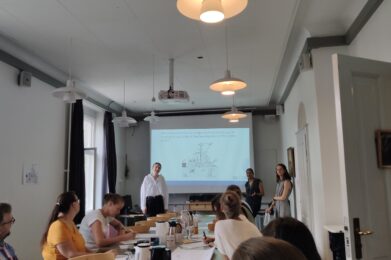
Interdisciplinarity is a substantial part of the DECIDE project. Bringing in diverse perspectives is essential to tackling complex problems – and benefits all disciplines through cross-fertilisation, gaining new insights, and broader impacts. The cattle tool researcher workshop is a good example for this approach in practice – read the attendees’ impressions, learnings and thoughts below.

